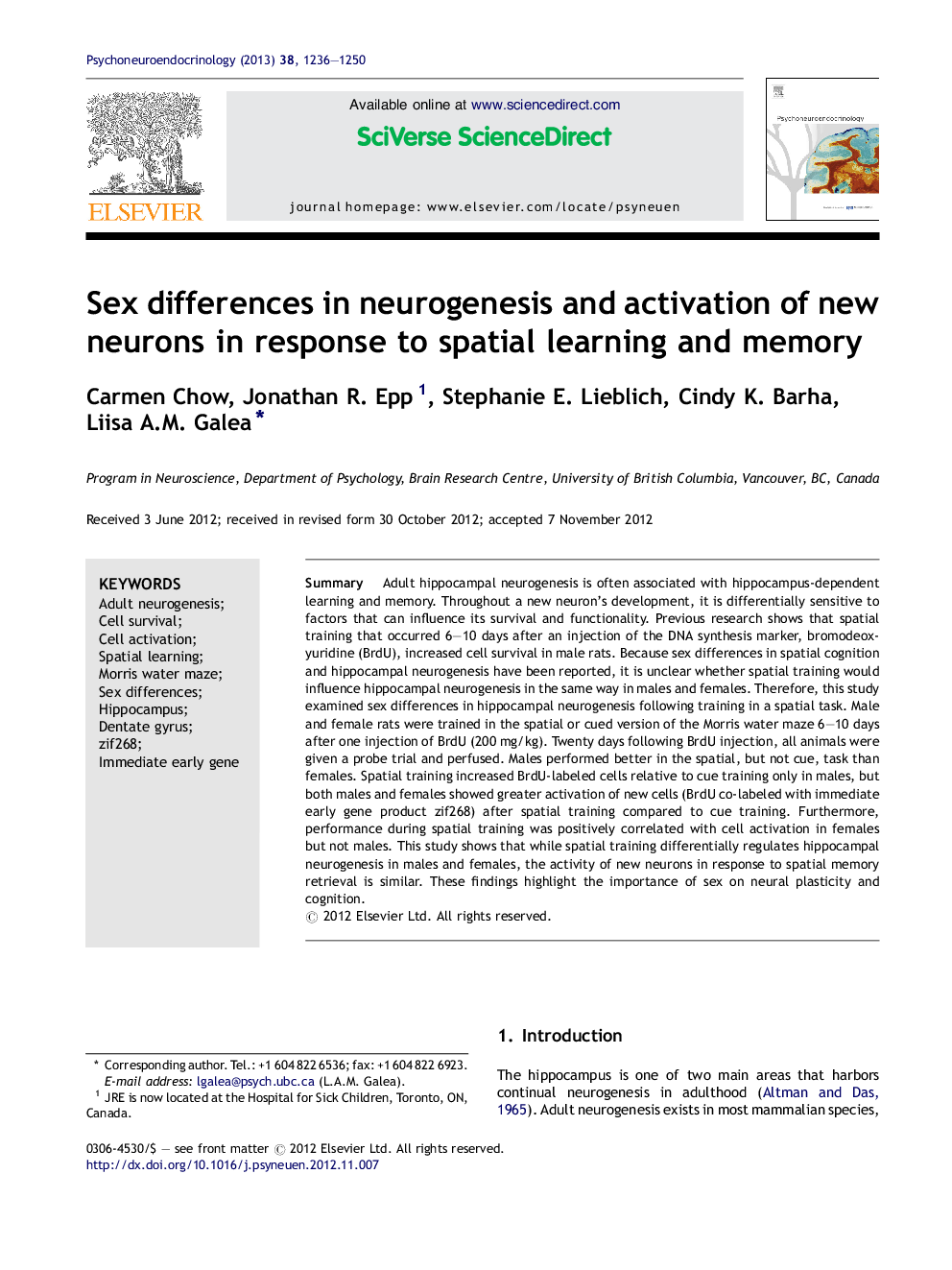| Article ID | Journal | Published Year | Pages | File Type |
|---|---|---|---|---|
| 10306653 | Psychoneuroendocrinology | 2013 | 15 Pages |
Abstract
Adult hippocampal neurogenesis is often associated with hippocampus-dependent learning and memory. Throughout a new neuron's development, it is differentially sensitive to factors that can influence its survival and functionality. Previous research shows that spatial training that occurred 6-10 days after an injection of the DNA synthesis marker, bromodeoxyuridine (BrdU), increased cell survival in male rats. Because sex differences in spatial cognition and hippocampal neurogenesis have been reported, it is unclear whether spatial training would influence hippocampal neurogenesis in the same way in males and females. Therefore, this study examined sex differences in hippocampal neurogenesis following training in a spatial task. Male and female rats were trained in the spatial or cued version of the Morris water maze 6-10 days after one injection of BrdU (200Â mg/kg). Twenty days following BrdU injection, all animals were given a probe trial and perfused. Males performed better in the spatial, but not cue, task than females. Spatial training increased BrdU-labeled cells relative to cue training only in males, but both males and females showed greater activation of new cells (BrdU co-labeled with immediate early gene product zif268) after spatial training compared to cue training. Furthermore, performance during spatial training was positively correlated with cell activation in females but not males. This study shows that while spatial training differentially regulates hippocampal neurogenesis in males and females, the activity of new neurons in response to spatial memory retrieval is similar. These findings highlight the importance of sex on neural plasticity and cognition.
Keywords
Related Topics
Life Sciences
Biochemistry, Genetics and Molecular Biology
Endocrinology
Authors
Carmen Chow, Jonathan R. Epp, Stephanie E. Lieblich, Cindy K. Barha, Liisa A.M. Galea,
